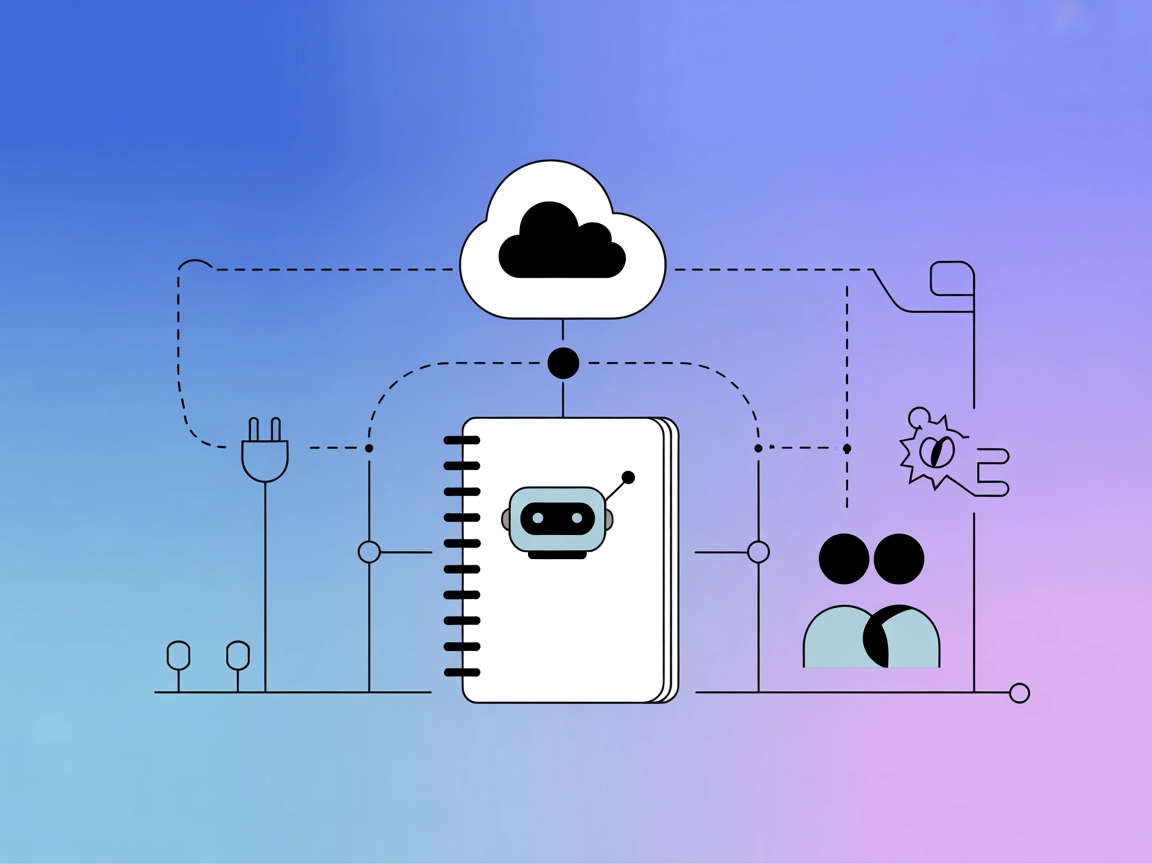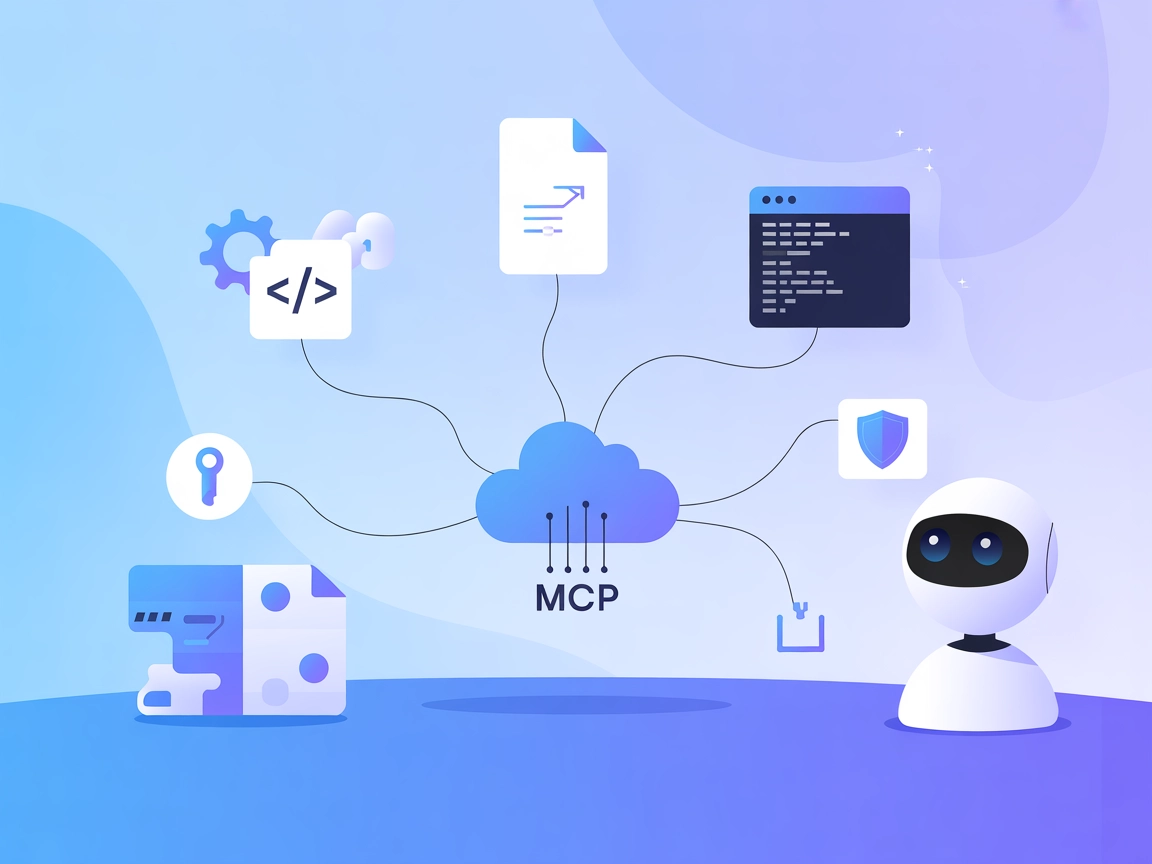
Obsidian MCP Server
The Obsidian MCP Server bridges AI assistants and Markdown knowledge bases like Obsidian vaults. It enables tools such as Claude Desktop to search, read, and su...

Integrate the Obsidian MCP Server with FlowHunt to unlock AI-powered note, tag, and vault management for enhanced productivity and automated knowledge workflows.
FlowHunt provides an additional security layer between your internal systems and AI tools, giving you granular control over which tools are accessible from your MCP servers. MCP servers hosted in our infrastructure can be seamlessly integrated with FlowHunt's chatbot as well as popular AI platforms like ChatGPT, Claude, and various AI editors.
The Obsidian MCP (Model Context Protocol) Server is a tool that enables AI assistants to seamlessly interact with Obsidian vaults. By exposing a variety of tools for reading, creating, editing, and managing notes and tags, it enhances development workflows for users who rely on Obsidian for knowledge management. The server allows AI-powered automation of tasks such as searching and organizing notes, managing tags, and manipulating directories within one or more vaults. This integration empowers developers and users to streamline note-taking, research, and content organization processes through advanced AI-driven context management.
No prompt templates are mentioned in the repository.
No explicit MCP resources are detailed in the repository.
No setup instructions for Windsurf are provided.
~/Library/Application Support/Claude/claude_desktop_config.json%APPDATA%\Claude\claude_desktop_config.jsonmcpServers object as shown below.{
"mcpServers": {
"obsidian": {
"command": "npx",
"args": ["-y", "obsidian-mcp", "/path/to/your/vault", "/path/to/your/vault2"]
}
}
}
No setup instructions for Cursor are provided.
No setup instructions for Cline are provided.
No explicit instructions for securing API keys or using environment variables are provided in the repository.
Using MCP in FlowHunt
To integrate MCP servers into your FlowHunt workflow, start by adding the MCP component to your flow and connecting it to your AI agent:

Click on the MCP component to open the configuration panel. In the system MCP configuration section, insert your MCP server details using this JSON format:
{
"MCP-name": {
"transport": "streamable_http",
"url": "https://yourmcpserver.example/pathtothemcp/url"
}
}
Once configured, the AI agent is now able to use this MCP as a tool with access to all its functions and capabilities. Remember to change “MCP-name” to whatever the actual name of your MCP server is (e.g., “github-mcp”, “weather-api”, etc.) and replace the URL with your own MCP server URL.
| Section | Availability | Details/Notes |
|---|---|---|
| Overview | ✅ | Obsidian MCP overview found in README |
| List of Prompts | ⛔ | No prompt templates mentioned |
| List of Resources | ⛔ | No explicit MCP resources described |
| List of Tools | ✅ | Detailed list in README |
| Securing API Keys | ⛔ | No instructions or JSON examples for securing API keys |
| Sampling Support (less important in evaluation) | ⛔ | Not mentioned |
Our opinion:
The Obsidian MCP server covers the basics well, providing clear documentation on setup (for Claude), a strong toolset for note and tag management, and a clear MIT license. However, it lacks explicit information on prompt templates, resource primitives, API key security, and advanced MCP features like Roots or Sampling. Its focus is practical and developer-friendly but not exhaustive in MCP protocol support.
| Has a LICENSE | ✅ (MIT) |
|---|---|
| Has at least one tool | ✅ |
| Number of Forks | 44 |
| Number of Stars | 401 |
Rating:
Based on the two tables, this MCP scores a 6/10. It’s practical, open source, and provides a wide set of tools, but lacks coverage of advanced MCP features, prompt and resource templates, and multi-platform/configuration/secret management guidance.
The Obsidian MCP Server allows AI assistants to interact directly with your Obsidian vaults, automating tasks like reading, creating, editing, and organizing notes and tags for streamlined workflows.
Available tools include reading, creating, editing, deleting, and moving notes; creating directories; searching vaults; adding, removing, and renaming tags; managing tags; and listing available vaults.
Use cases include vault-wide search and retrieval, programmatic note management, tag organization and bulk editing, directory and multi-vault handling, and large-scale content cleanup or reorganization.
Currently, setup instructions are provided for Claude only. Windsurf, Cursor, and Cline setups are not documented, but the MCP server is developer-friendly and open source.
There are no explicit instructions for API key security or environment variable use in the official documentation. Standard security best practices are recommended.
Automate and streamline your note-taking, research, and organization workflows by connecting the Obsidian MCP Server to FlowHunt.

The Obsidian MCP Server bridges AI assistants and Markdown knowledge bases like Obsidian vaults. It enables tools such as Claude Desktop to search, read, and su...

The onenote MCP Server connects AI assistants with Microsoft OneNote, enabling automated note retrieval, organization, and smart search through standardized pro...

The Markitdown MCP Server bridges AI assistants with markdown content, enabling automated documentation, content analysis, and markdown file management for enha...
Cookie Consent
We use cookies to enhance your browsing experience and analyze our traffic. See our privacy policy.